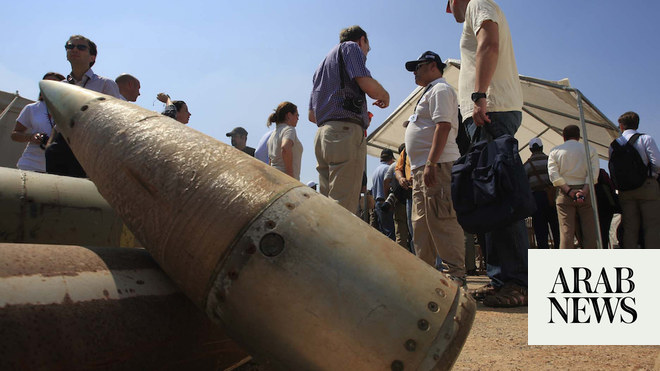
Presidential spokesman says anti-virus initiative a result of partnership with WB
KABUL: With the launch of a new $224 million aid package to tackle the coronavirus disease (COVID-19) pandemic, Afghans told Arab News on Sunday that they feared corruption, and demanded stricter monitoring of resources.
It follows President Ashraf Ghani launching the initiative on Saturday, to provide basic food and essentials to 4 million families, by covering 90 percent of the population in the war-torn country.
“It is going to be implemented by thousands of local members of Misaq Sharwandi (Citizenship Charter) council … all civil society entities are responsible for monitoring. It is a citizens-based approach,” Ghani’s chief spokesman, Seddiq Sediqqi, told Arab News on Sunday, adding that the new project was a “partnership” between the Afghan government and the World Bank.
Afghan citizens, however, are not convinced.
“I am a war widow and breadwinner for my family of four, and deserved to have been on the list of beneficiaries in the last round, but got nothing,” Jamila, a 46-year-old Kabul resident, told Arab News, referring to a government bread distribution program for families affected by weeks of lockdown to limit the spread of COVID-19.
“There should be a monitoring system to make sure that this time, too, the aid is not misused and looted,” she said.
It is a sentiment shared by lawmakers who said that the government — under fire at home and abroad for not doing enough to tackle corruption — had not consulted or informed them about the new program. Some politicians are skeptical that the aid may be embezzled.
“The aid hardly reaches the needy and deserving people,” Hamida Wardak, an MP from Maidan-Wardak province, told Arab News.
“I think the resources will be wasted again. There should be tight monitoring of the process, and we in the parliament will have to be part of the monitoring,” she added.
Atta Mohammad Dehqanpur, a legislator from Ghor province, agreed, and said that the parliament was mostly weak, with “no power” to check government spending.
He feared that the new resources would be misused “by some in the government,” while many in his impoverished province would “not benefit” from it.
Others on social media spoke about their mistrust of the government and its ability to deliver the new aid package.
“As a citizen, I have no belief in the transparency of this process,” Hasiba Efat, a former provincial council member from Parwan province, tweeted on Sunday.
“This could be a plan for corruption within the government from those who could not squander resources in previous programs,” she added.
Another lawmaker said instead of spending $224 million on the new aid package, Kabul needed to rebuild roads, upgrade urban areas and construct a hydroelectric dam, which would ensure long-term benefits for the public and provide jobs for thousands of people.
In recent months, international institutions and donors had pledged to provide hundreds of millions of dollars for Afghanistan to combat the COVID-19 crisis. In contrast, the International Monetary Fund (IMF) had said it would offer Kabul $229 million as a free loan.
Since March, however, there have been complaints of mismanagement and embezzlement by government officials in Kabul and elsewhere, with an Afghan daily reporting that $11 million alone was misused from the bread distribution program.
Other accusations include the disappearance of ventilators, delayed payment of doctors’ salaries, a shortage of protective gear for medical staff, and a lack of oxygen, sanitizers and surgical masks at hospitals dealing with the pandemic.
Amid complaints of corruption involving COVID-19, Ghani said his “government will act against those who have misused the resources in fighting coronavirus.”
But locals say they have not seen any significant progress, even as Ghani reiterated on Saturday that his government would “prevent corruption” in the new program.
Torek Farhadi, a former government and IMF adviser, told Arab news that Kabul was using World Bank package “first and foremost for its propaganda and popularity,” adding: “Afghanistan has become addicted to international aid. The trouble is, international aid does not reach the needy — it ends up in private real estate projects and financing armored cars for the powerful.”











